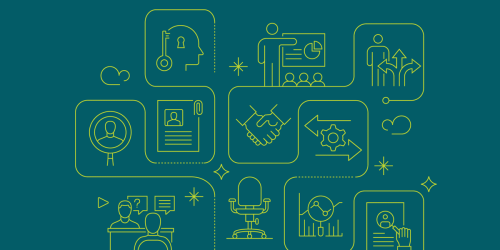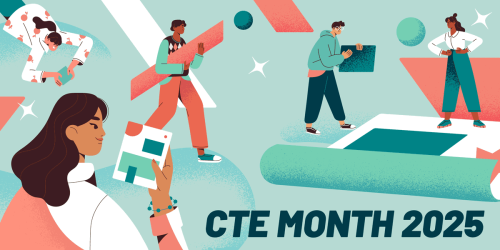Experience Matters: Scaling Workplace Learning for Youth

Students who work learn firsthand what employers value and how academic and technical skills can be applied. High-quality work-based learning (WBL) offers students authentic opportunities to learn what work entails and hands-on experiences that can help them find their future career.
Well-designed WBL experiences are valuable but can be difficult to arrange. Teachers frequently lack contacts with employers, frameworks for engagement, and resources to monitor student experiences. Scheduling, transportation, work-site safety, and insurance requirements introduce further challenges. An additional complication is that employers often have limited financial incentive to participate, since supervising students can divert attention from more productive work.
However, there are industries—such as retail and food service—where high school students are integral to the business model. Here youth typically work in entry-level jobs after school, on weekends, and during the summer, gaining valuable workplace skills outside the classroom. This describes my own career evolution. In high school I worked night and weekend shifts at a local Häagen-Dazs retail store, balancing homework and sports with a hectic job schedule.
Scooping macadamia nut ice cream wasn't glamorous or cerebral, but I did learn about basic cash management, food safety, customer relations, and that “time to lean is time to clean.” I also made friends who weren't on my college track, which helped break down stereotypes and expand my conception of intelligence. The work fell well short of a formal internship, but it could have been so much more—if only my teachers and the shop owner had collaborated.
Although not technically advanced, the employability skills youth learn at after-school jobs are crucial for workplace success. When asked what they need from entry-level workers, employers consistently name basic skills—punctuality, communication, critical thinking, and collaboration. Advanced academic and technical skills can be taught on the job, but you can’t learn if you don’t show up.
After-school jobs offer educators and companies the opportunity to substantially increase the number of students with workforce experience. These jobs may not expose students to cutting-edge technologies, but the employability skills they teach can launch students on a trajectory for career success.
But why stop there? Most service sector jobs have potential for advanced skill instruction. With a little creativity, a job scooping ice cream can reinforce and expand a college-preparatory academic program. How might teachers and business owners collaborate to teach finance and entrepreneurship? Chemistry and biology? Is there less to be learned in writing about the history of dairy farming than the literary merits of Beowulf?
While we should begin with what exists today, we need not confine our attention to the service sector. Employers in every industry (e.g., health care, information technology, manufacturing) can create youth employment opportunities that expose students to careers. These options should be intentionally designed to offer students a broad perspective of what it means to work in the industry while offering employers a quantifiable return on investment.
Employers working together with high school teachers offers a triple win:
- Students benefit when their work experiences are directly connected to their schooling, for example through project-based learning or class credit
- Educators benefit from employer feedback on students' career readiness and the types of math, science, and writing skills that should be integrated into the curriculum
- Employers benefit by building pipelines into schools that prepare the next generation of workers, produce community goodwill, support workforce recruitment, and fill open jobs
If we want to meaningfully scale workplace experiences for high school students, we need to find new ways to engage employers and set realistic goals for their involvement. We need to drop the stigma associated with entry-level work and seek out practical and relevant opportunities for youth to contextualize academic learning within a structured and supervised program. And we need to offer employers an incentive to participate that transcends charity.
A solid foundation of basic academic, technical, and employability skills can help high school students learn a profession and advance in their careers. Indeed, research suggests that youth who work realize future labor market benefits. Perhaps it is because learning fundamental work skills early on, while not sufficient to get high school students hired immediately upon graduation, just might keep them from being fired once they are employed. We simply need students, educators, and employers to clock in and get to work.



